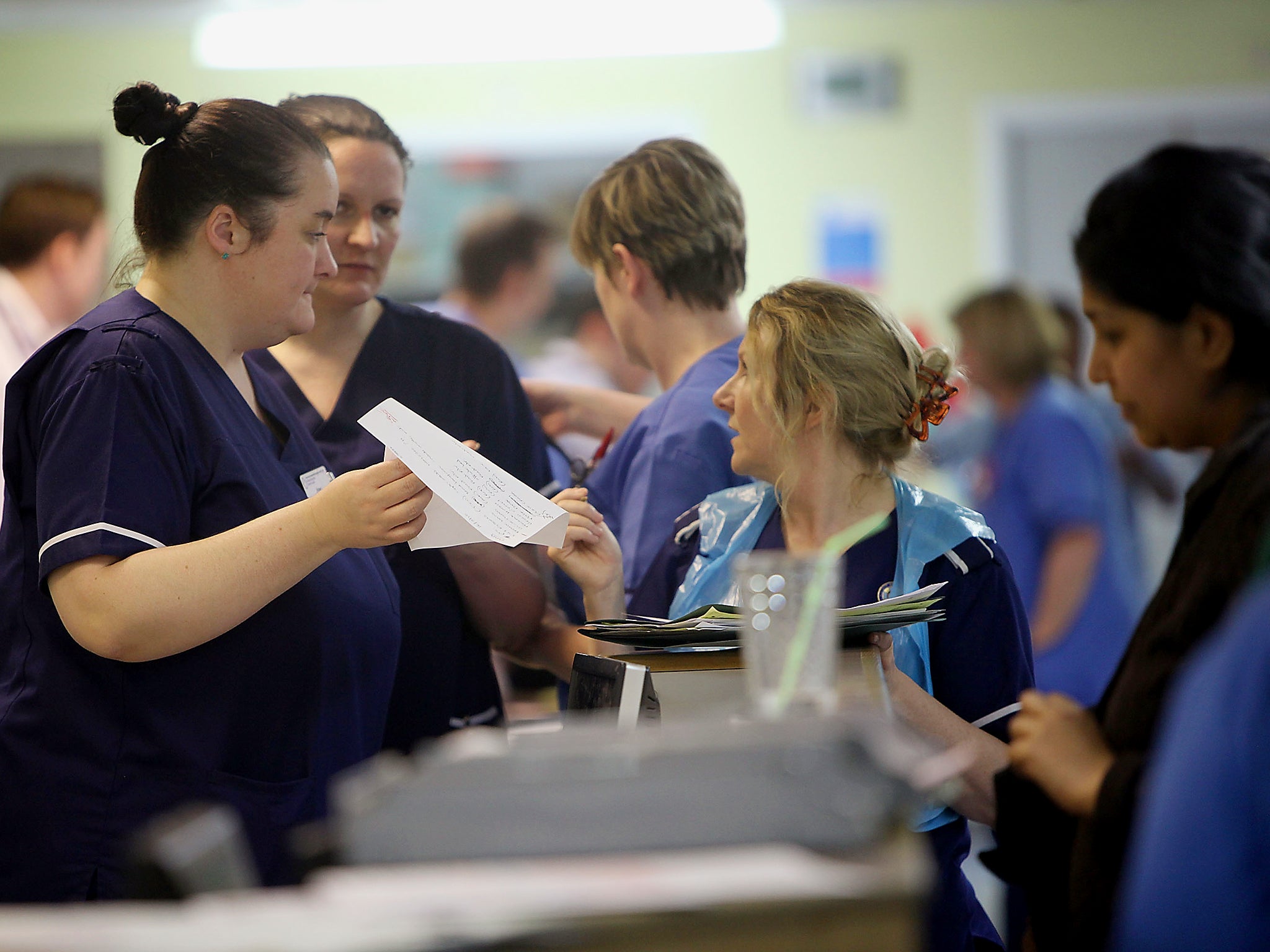Nurses training to work as junior doctors in hard-to-staff hospitals as part of UK-first pilot
Hospital trust says it is an alternative to the 'traditional medical model which is hard to recruit to', particularly in remote areas

Support truly
independent journalism
Our mission is to deliver unbiased, fact-based reporting that holds power to account and exposes the truth.
Whether $5 or $50, every contribution counts.
Support us to deliver journalism without an agenda.

Louise Thomas
Editor
Nurses are being trained for roles that would usually be performed by doctors, as part of a pioneering pilot to tackle medical workforce shortages in more remote hospitals.
Currently being trialled in western Cumbria, the two-year Hospitalist Medicine course is training five experienced nurses so they can work at the same level as medical registrars, otherwise known as junior doctors.
On completing the course, staff would be qualified to work as senior advanced clinical practitioners, and be part of the senior decision-making team in acute hospital wards.
Senior decision-makers in the NHS are those who can diagnose and set a care plan for patients, as well as discharge them when they're deemed fit – without referring to a more senior clinician.
However, the programme – led by North Cumbria University Hospitals NHS Trust in conjunction with University of Central Lancashire (UCLan) – is open to all advanced clinical practitioners.
As a result, physiotherapists, pharmacists and paramedics and a wide range of frontline NHS staff from a non-medical background will be able to participate.
Those taking part will form a core part of the “composite workforce” programme at West Cumberland Hospital in Whitehaven, which has been developing non-medical staff from a variety of roles.
The hospital trust says this is an alternative to the “traditional medical model which is hard to recruit to”, particularly in remote areas like West Cumbria.
“We believe this to be a definitive first in the UK,” said course leader Professor Gershan Davis, a professor of cardiology at UCLan and the trust.
Everyone the Government blames for the NHS crisis – except themselves
Show all 6Health Secretary Jeremy Hunt has pledged to make the NHS self-sufficient in doctors, expanding the number of training places at medical schools by 25 per cent.
The 1,500 new medical school places will be focused in universities that have too few doctors in their region, or which have a good track record producing in-demand specialities like GPs and psychiatrists.
Mr Hunt also promised a historic" increase in nurse training places at the 2017 Conservative Party Conference in October, but figures published shortly afterwards showed numbers dropped for the first time in four years.
A report last year from health policy think tank the Nuffield Trust said the NHS will be increasingly reliant on other staff taking on medical roles because of shortages.
Staff would still have to pass any recruitment and selection process before getting an NHS job.
Professor Davis said: “It is a new example of how the collaboration between NCUHT and UCLan is helping to lead the way in innovative practice, by looking at new models of health care delivery to maintain the health and wellbeing of our population.”
Stephanie Aitken, deputy director of nursing said that while the course may be new, many nurses were already taking on roles and responsibilities beyond the traditional nursing role.
"We do not regard this practice as nurses substituting for junior doctors," she said. "
"Instead, nurses trained to work at advanced levels of practice in this way bring a unique and complementary skill-set to the NHS.
"The changing needs of patients in the 21st century, when so much of patient care involves managing, rather than curing, long-term conditions like angina or lung disease, will be best served by teams comprising both highly-trained nurses and medical staff in this way”.
Subscribe to Independent Premium to bookmark this article
Want to bookmark your favourite articles and stories to read or reference later? Start your Independent Premium subscription today.
Join our commenting forum
Join thought-provoking conversations, follow other Independent readers and see their replies
Comments